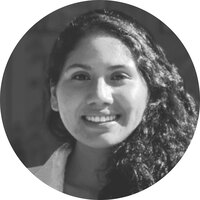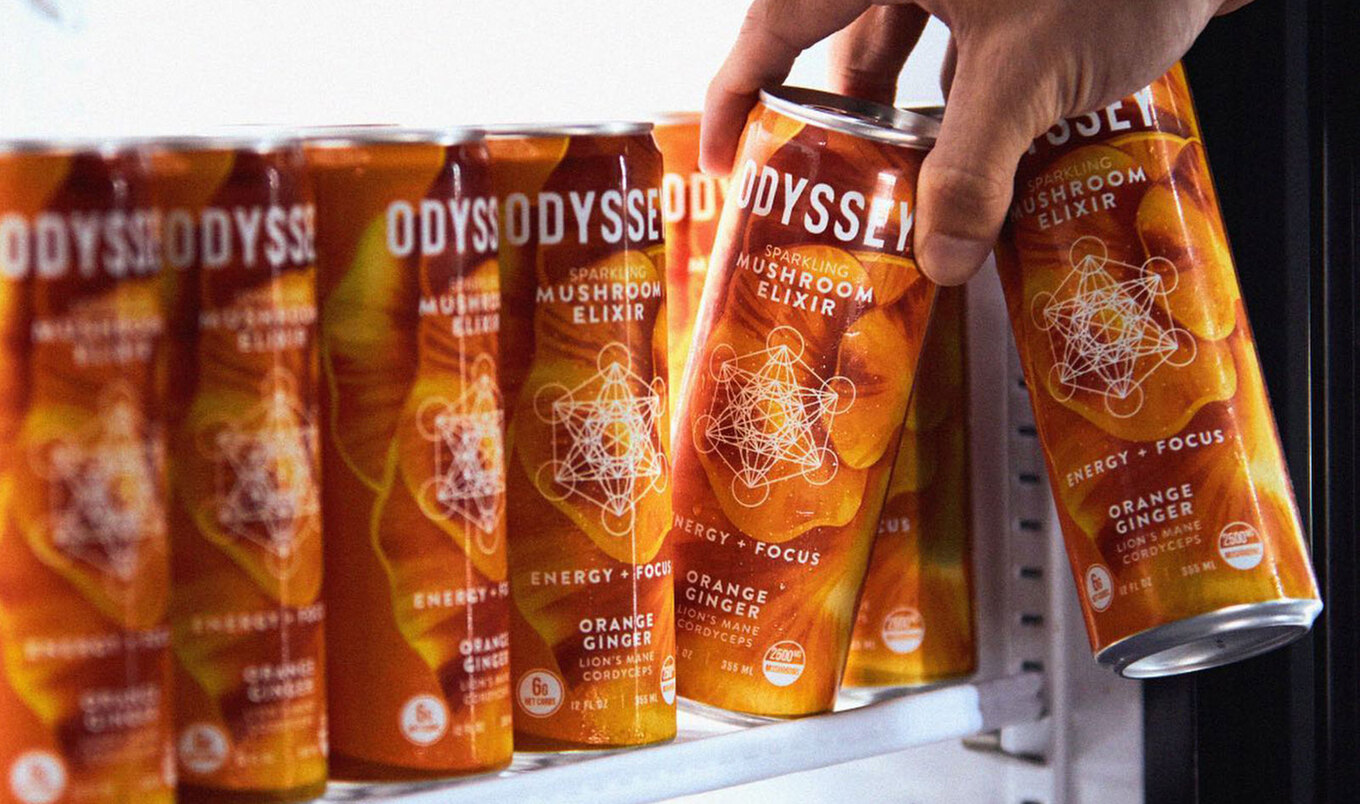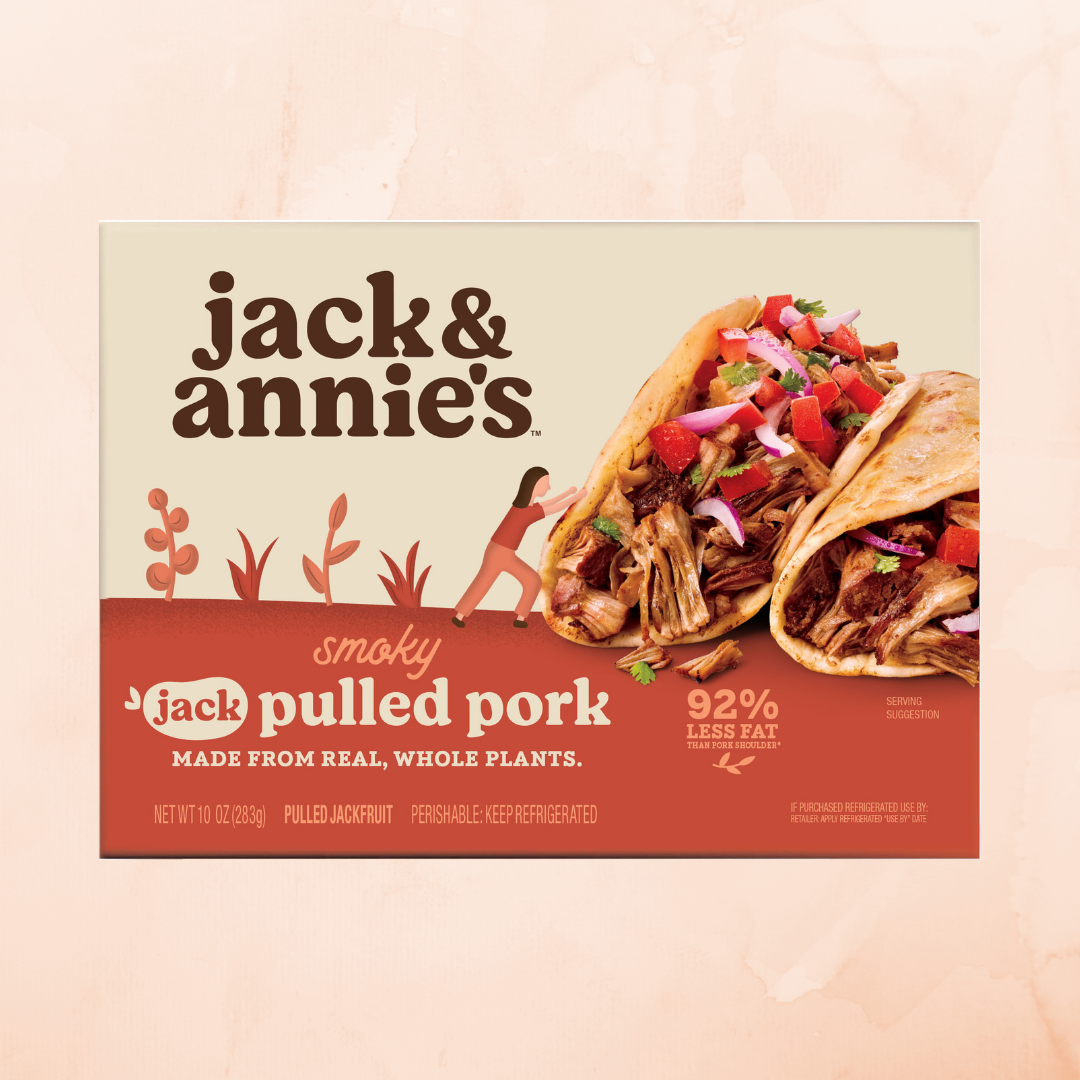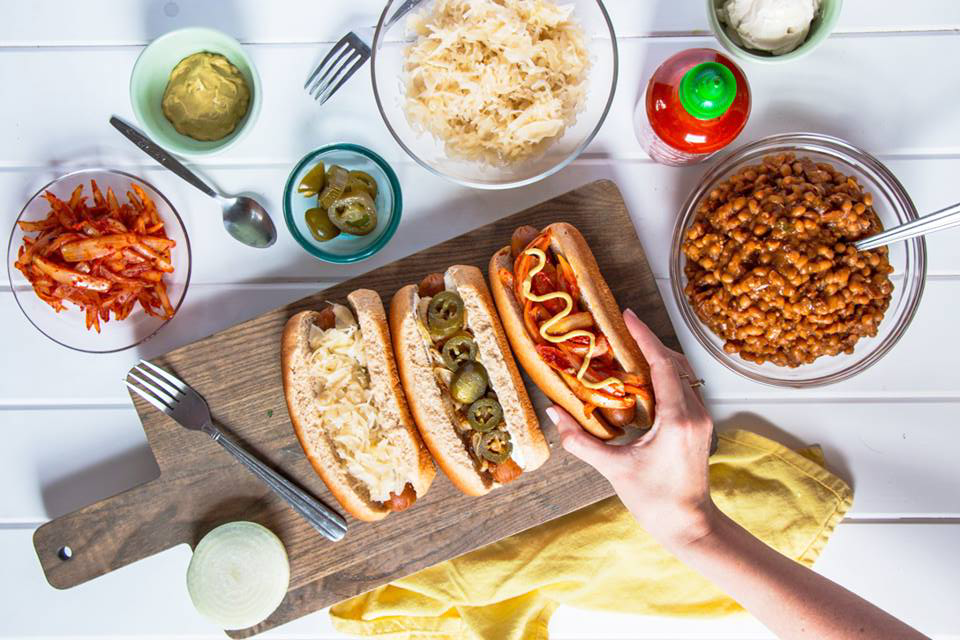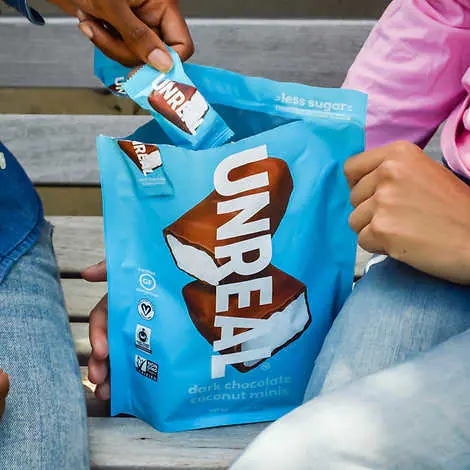Across the United States, consumers continue feeling the effects of inflation. Between March and April, consumer prices increased 0.4 percent, a 0.1 percent increase from February to March. When compared to April 2022, consumer prices increased by 4.9 percent, a figure that remains well above the Federal Reserve’s 2 percent target inflation rate.
At the grocery store, shoppers are experiencing a slight decrease in food costs. In April, the cost of groceries dropped, following a similar decrease in March. However, when compared to the cost of groceries in April 2022, prices are up by 7.1 percent according to the Bureau of Labor Statistics.
Thankfully, a number of vegan organizations are helping communities in need offset the cost of groceries and plant-based goods through food pantries, food and produce giveaways, community fridges, and all-vegan food banks.
Table of Contents
New vegan pantry sprouts near Chicago
One such effort is the Little Free Plant Powered Pantry (LFPPP). Set to officially launch on May 27 in Berwyn, IL—just outside of the Chicago city limits—LFPPP was created by Marla Rose and John Beske, the husband-and-wife team behind vegan lifestyle brand Vegan Street.
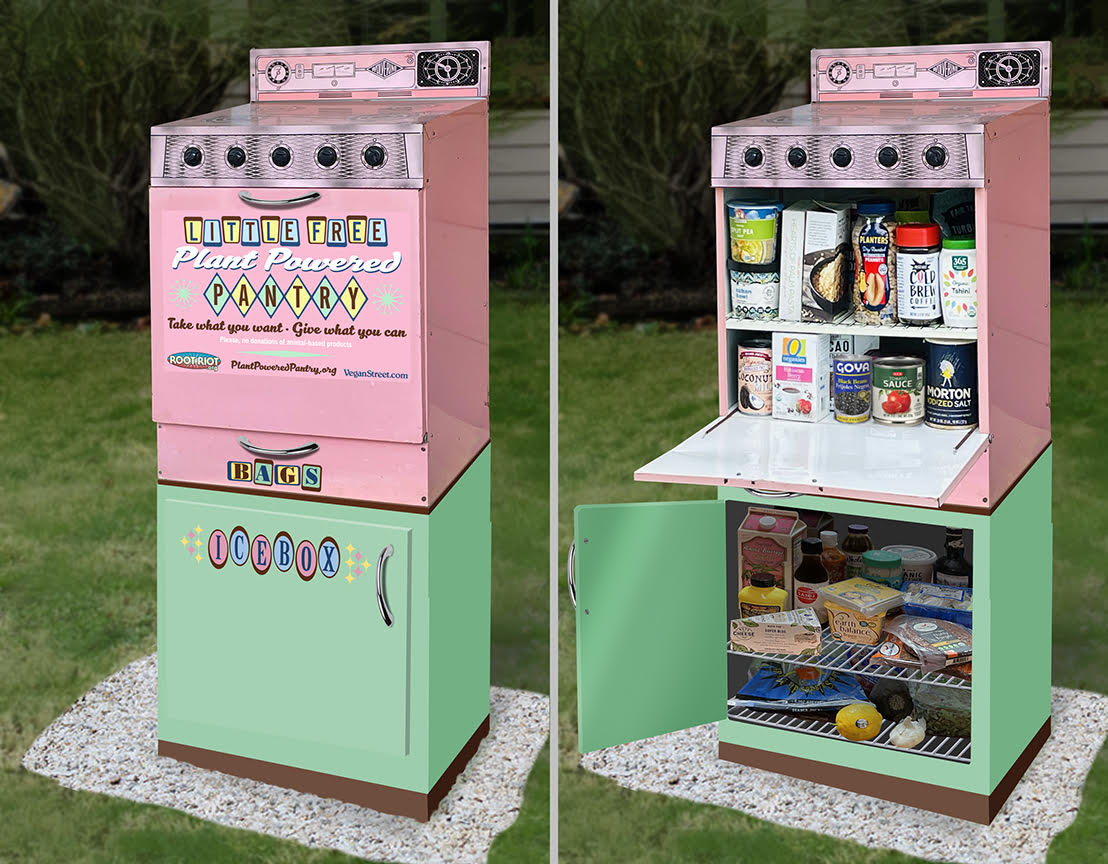 Little Free Plant Powered Pantry
Little Free Plant Powered Pantry
“I want to, first, provide food for anyone who wants and needs it. That is the primary goal,” Rose tells VegNews. “Food access is a real issue. I think we can be one option among many who are offering hunger relief.”
With continued inflation and increased grocery costs nationwide, LFPPP is poised to help the local community, where, according to the Greater Chicago Food Depository, food insecurity is on the rise.
In Cook County, where Chicago and Berwyn are located, food insecurity saw a 19 percent increase when compared to pre-pandemic levels. For Black households, this number is far higher—with food insecurity levels 37 percent higher than they were pre-pandemic. Overall, one in five Chicago households currently experiences food insecurity.
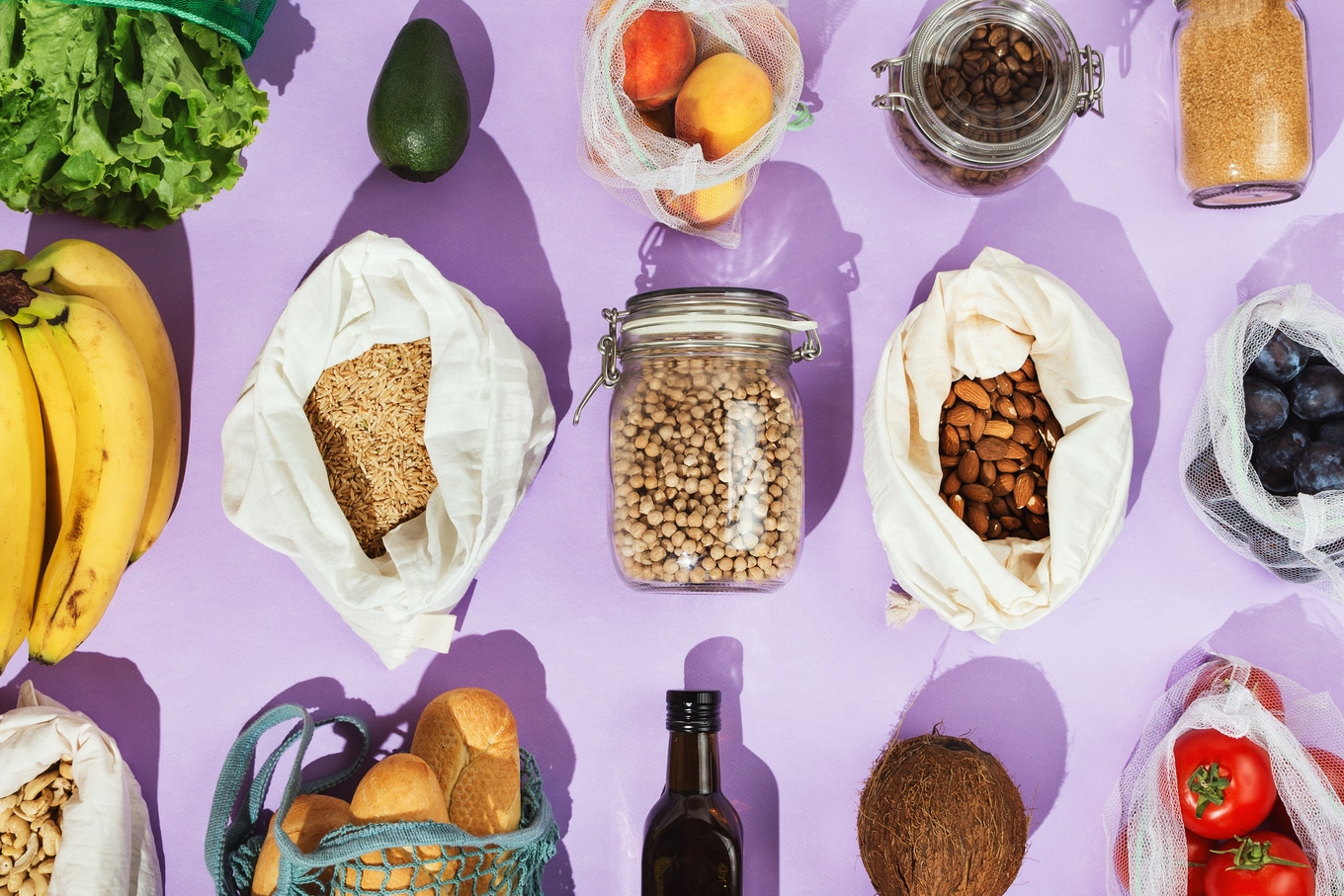 Getty
Getty
Rose is new to the field of vegan food relief, but hopes that the LFPPP will help make a difference. Rose and Beske plan to stock their vegan food pantry with shelf-stable items such as pasta, sauces, beans, nut butters, and more. They’re also working to build a refrigerated component and hope to stock excess produce from local gardens in the future.
“As of now, we don’t know exactly who will be taking advantage of the LFPPP, but it will be set up less than a block away from a multicultural, mixed-income elementary school and we suspect that at least some of our traffic will come from there,” she says.
“As we go forward, we will be able to get a better sense of who is using it and how it can best serve the needs of the community,” Rose says. “We are going to be humbly learning as we go.”
Given its location near an elementary school, the LFPPP is poised to bring food relief to young children and their families. This is especially noteworthy given that one in four children in Cook County are at risk of hunger, according to the Greater Chicago Food Depository.
The LFPPP isn’t the only vegan food initiative bringing hunger relief closer to schools.
Vegan food relief comes to New York City schools
Nearly 800 miles east, in New York’s Lower East Side, activist and community organizer Power Malu has launched 10 plant-based community fridges in public schools across the neighborhood.
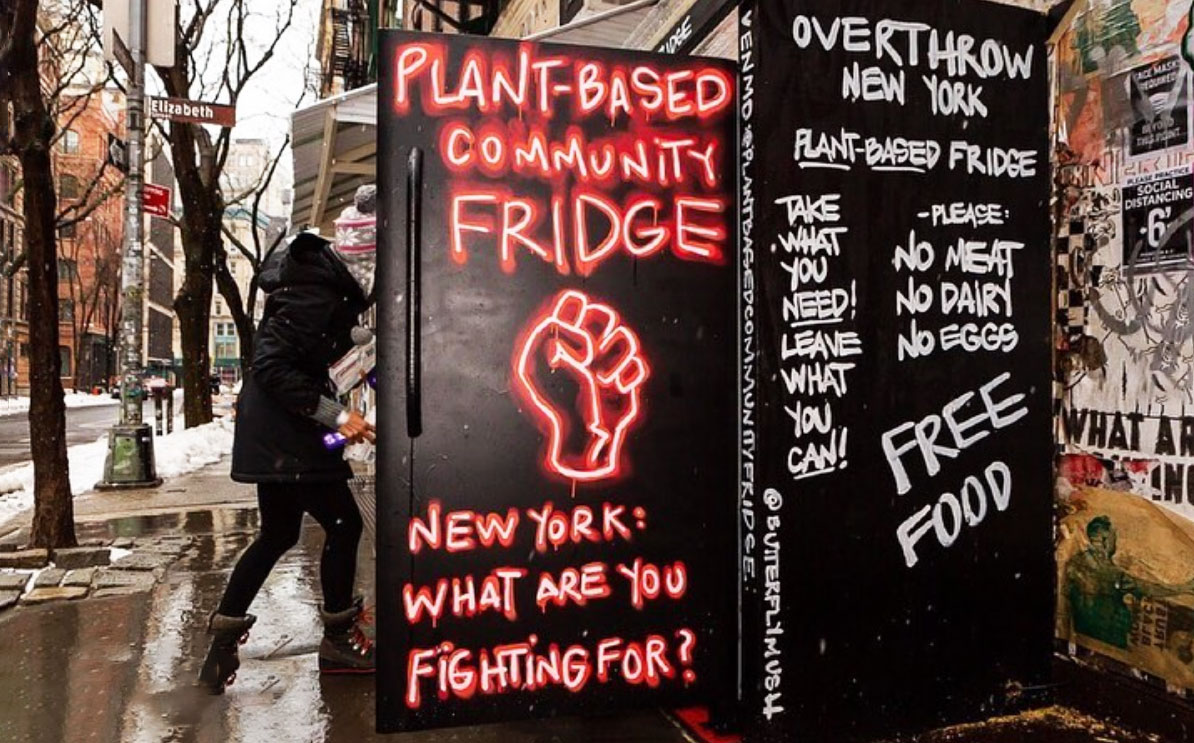 Mikiodo
Mikiodo
After debuting the Overthrow Community Fridge, New York City’s first vegan community fridge, in February of 2021, Malu connected with Lilah Mejia, a member of the local Community Education Council. It was Mejia who suggested they bring community fridges to public schools, and with good reason.
In New York City, free lunches at schools play a pivotal role in providing hunger relief to children, 70 percent of whom come from low-income families. But when classrooms closed at the onset of the COVID-19 pandemic, the city scrambled to devise a plan to continue providing its students with food.
According to Feeding America, one in four children in New York City experience food insecurity. In fact, a 2022 report from City Harvest, the city’s largest food rescue organization, revealed that child hunger and food insecurity increased 55 percent when compared to pre-pandemic levels.
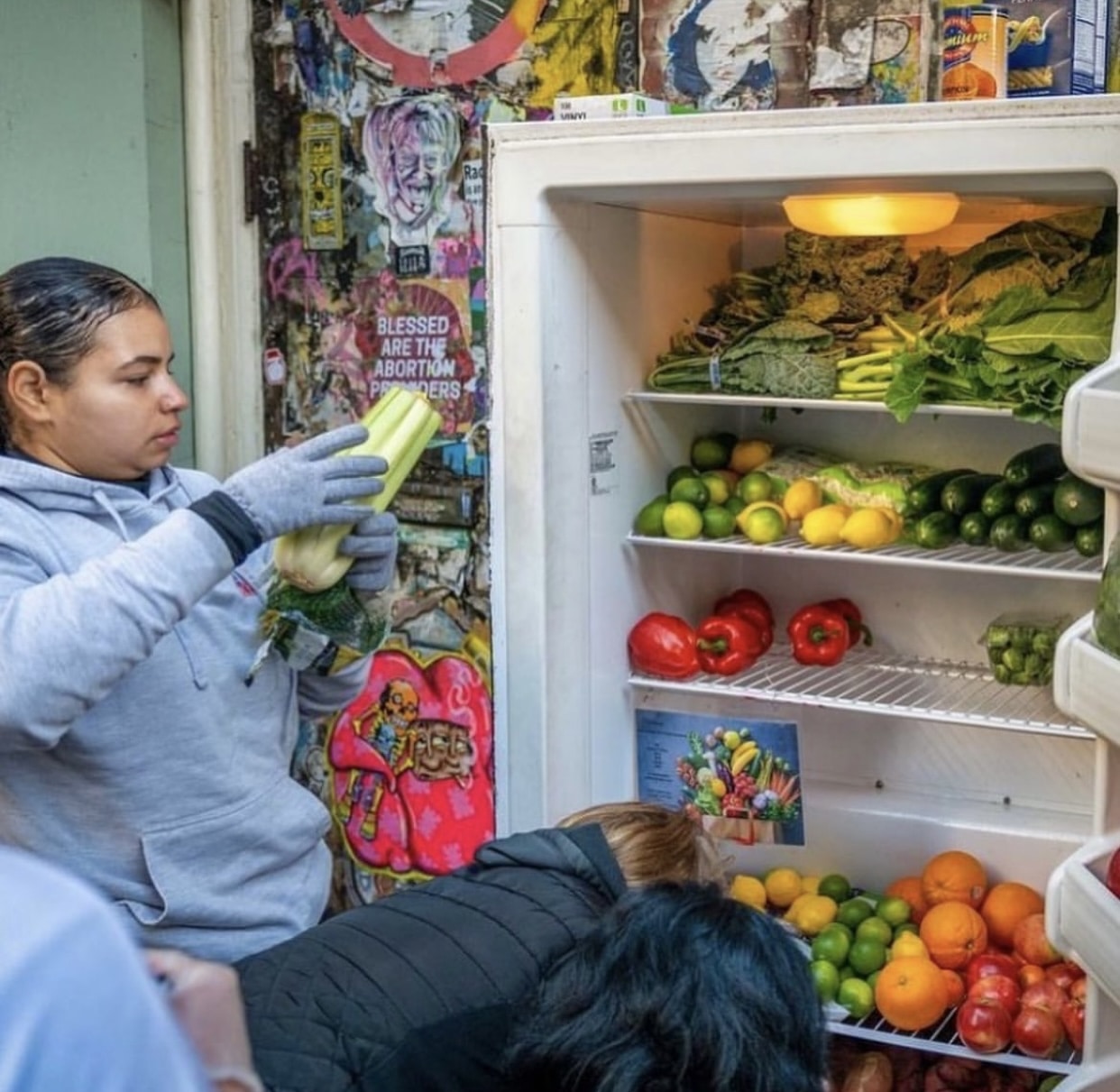 @_henesse/Instagram
@_henesse/Instagram
With these 10 community fridges located in public schools, Malu provided critical food relief. Thanks to local Thai restaurant May Kaidee, he was also able to provide cooked meals to students. Today, Malu continues stocking these refrigerators and conducts weekly produce deliveries to families at these schools and to public housing developments in the Lower East Side.
He’s also expanded the offerings available at the original Overthrow Community Fridge. Once stocked with shelf-stable items and fresh produce, the refrigerator now offers prepared vegan meals thanks to a collaboration with EVLoves NYC, a nonprofit providing hunger relief.
“EVLoves NYC is an amazing partner. We connected with them during the pandemic to feed New Yorkers,” Malu says. “They have stepped up big time and the fact that they have provided us with cooked vegan meals speaks volumes.”
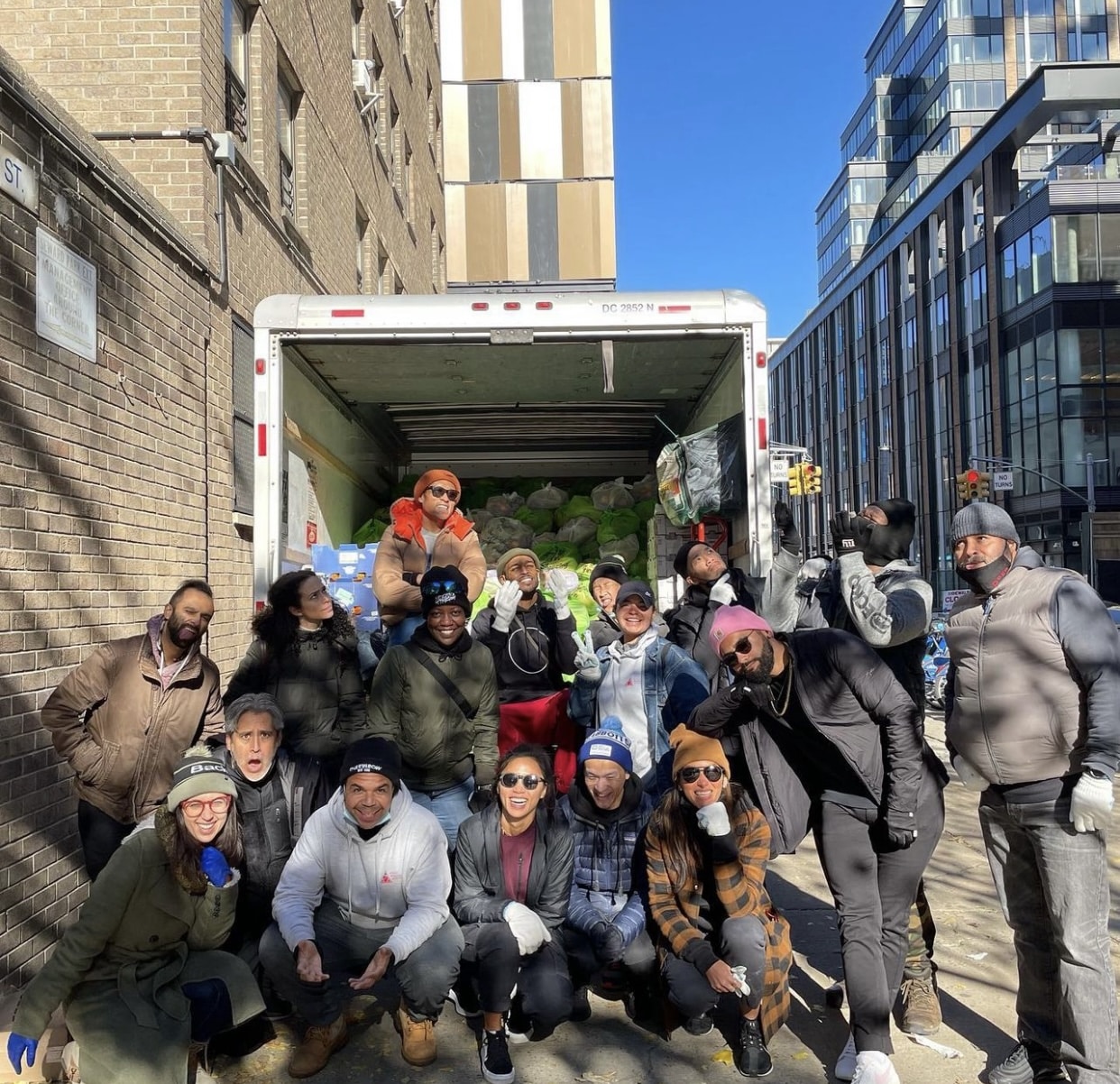 @_henesse/Instagram
@_henesse/Instagram
“They have chefs and cooks who are vegan and are super excited to be contributing to our plant-based community fridge initiative,” he says. “The community looks forward to having a cooked meal [and they are] so grateful that we are able to offer that option to them.”
Beyond the Lower East Side, Malu has extended his plant-based community fridge program to other boroughs, including Brooklyn and the Bronx.
From the East Coast to the West Coast
Across the country, activist Gwenna Hunter is making history with the Vegans of LA Food Bank, the city’s first plant-based food bank.
Launched in May 2022 in collaboration with the Hope on Union United University Church Food Bank, the Vegans of LA Food Bank provides plant-based goods on a monthly basis. “[Healthy, vegan] food is a birthright,” Hunter tells VegNews.
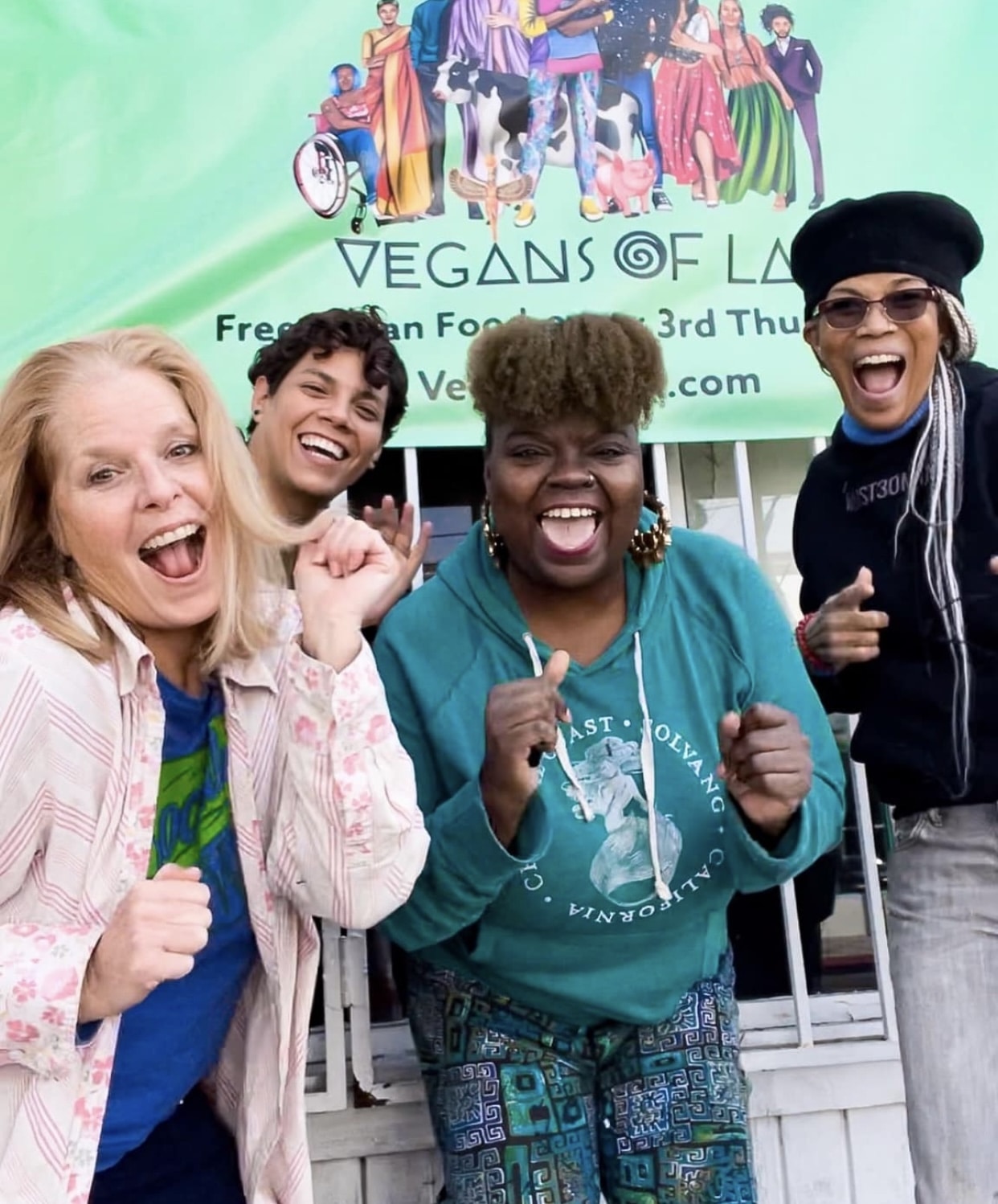 @paigeparsonsroache/Instagram
@paigeparsonsroache/Instagram
From 8am to 11am on the third Thursday of every month, community members line up for fresh produce and a selection of vegan products donated from companies such as GTFO It’s Vegan, Omni Foods, Good Catch, Unreal Deli, All Vegetarian Inc, and more.
Located in South Central Los Angeles, the Vegans of LA Food Bank brings fresh, healthy food to residents living in a food desert, where grocery stores are few and far between. In fact, according to Story Maps, as of November 2020, there were just seven grocery stores across South Central, a region that 750,000 Angelenos call home.
The local community, Hunter notes, has welcomed the monthly vegan food bank with open arms. And while Hunter receives produce donations, she often purchases additional fruits and vegetables based on feedback from those she serves. “Bananas are always in demand,” she shares. Mushrooms, cilantro, mangos, apples, and cabbage are other popular requests.
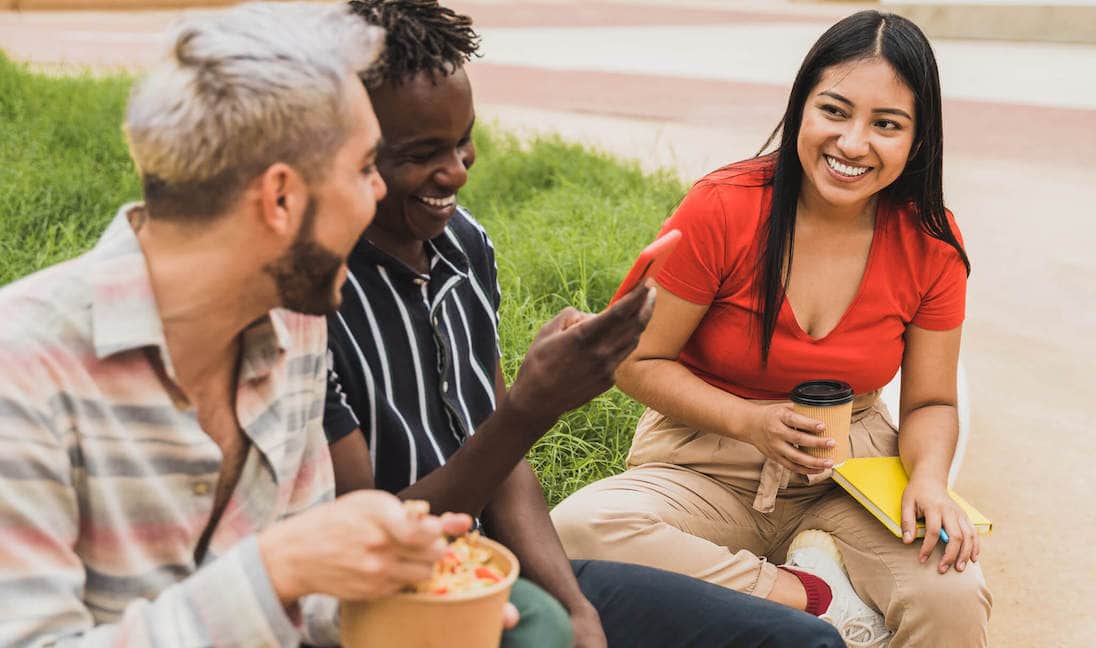 Vanessa Nunes
Vanessa Nunes
Beyond the Vegans of LA Food Bank, Hunter launched another vegan food bank just last month at the University of Southern California (USC). She’s also partnered with USC Clover (a student organization focused on veganism, environmentalism, and reducetarianism) and Jubliee Cafe (a co-op café) to provide students with hot, vegan meals.
Every Tuesday, Hunter, USC Clover, and Jubilee provide food to more than 150 students. While these programs are currently on hiatus as USC just completed its 2022-2023 school year, Hunter confirms they will be back come August.
Food insecurity lives on post COVID-19
Outside of efforts like the LFPPP in Chicago, Vegans of LA Food Bank, and Malu’s community fridges and produce deliveries in NYC, a number of organizations are providing food relief on a larger scale.
Among such organizations is Support + Feed. Founded by actress Maggie Baird, mother of vegan musical artist Billie Eilish, Support + Feed came to fruition during the COVID-19 pandemic as a means to feed first-responders and those in need while supporting vegan restaurants.
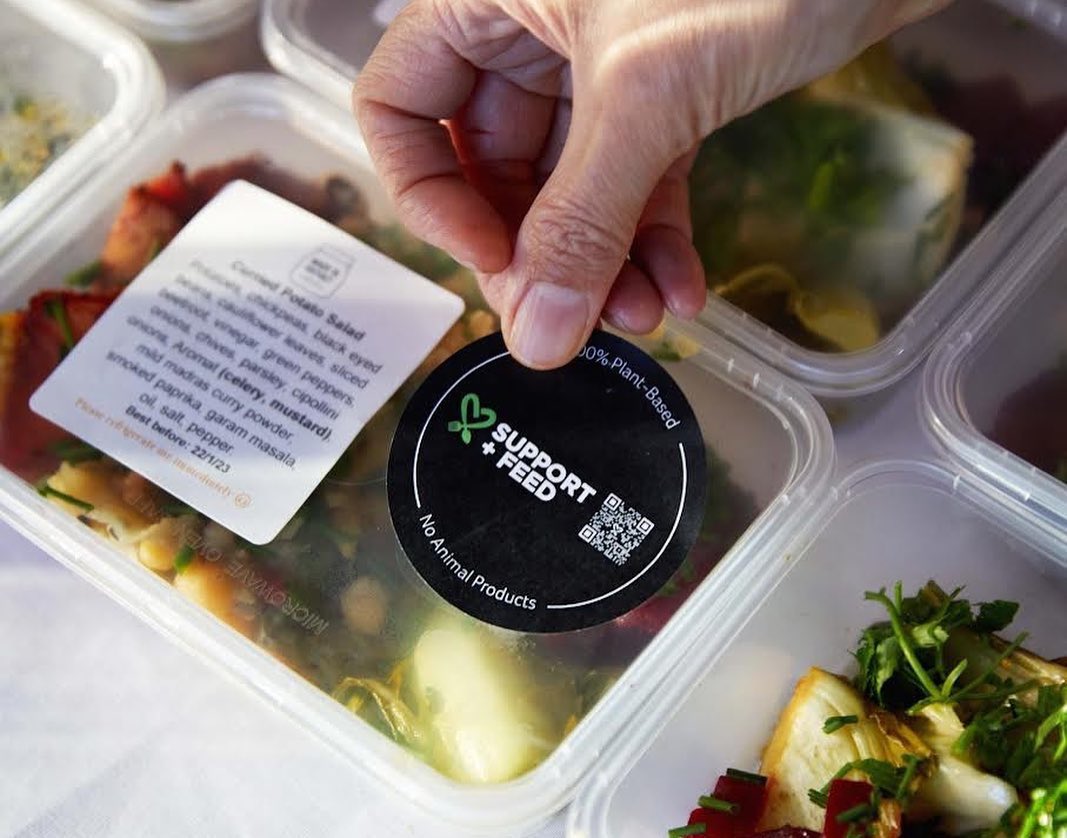 Support + Feed
Support + Feed
“Support + Feed started just a few years ago, and already, we’re in over 10 anchor cities such as Atlanta, Detroit, New York, Philadelphia, and London,” Baird tells VegNews. “This shows the desire —and the need—of the people who understand that access to nourishing, plant-based food is not only a human right, but a critical piece to alleviating our suffering planet.”
Support + Feed, like so many other vegan food relief efforts, including those mentioned here, arose from a need exacerbated by the COVID-19 pandemic. And while federal relief efforts such as stimulus checks, child tax credits, and eviction moratoriums provided momentary financial assistance, these have now ended—but food insecurity remains.
“People think because the pandemic is over, people are no longer hungry. That couldn’t be farther from the truth,” Malu explains. “People were struggling to access fresh fruits and vegetables before the pandemic.”
“The pandemic just made the problem more visible and humanized the situation,” he says, adding that his efforts are not sponsored by corporations and rely on grassroots efforts and individual donations.
“Therefore, if there isn’t news covering this issue, [the public] thinks it has been solved,” Malu says. “The reality is that we’re still out here on the streets advocating for access to fresh produce and plant-based options.”


